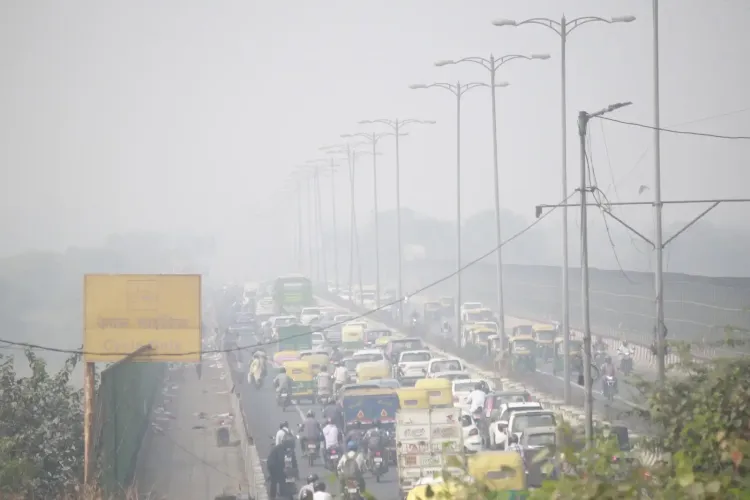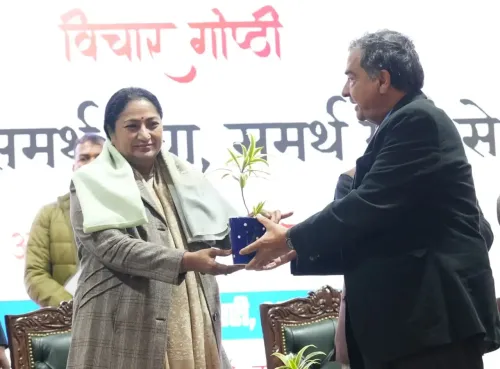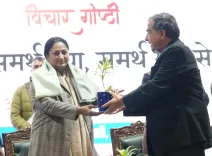Study Reveals 10 Microgram Increase in Annual PM2.5 Exposure Heightens Mortality Risk for Indians

New Delhi, Dec 12 (NationPress) Every 10 micrograms per cubic metre rise in annual exposure to fine particulate matter 2.5 (PM2.5) is linked to an 8.6 per cent increase in mortality risk throughout India, as highlighted in a study published on Thursday.
The research, featured in the Lancet Planetary Health journal, indicates that long-term exposure to PM2.5 levels exceeding the 5 micrograms per cubic meter annual average recommended by the WHO could be responsible for approximately 1.5 million deaths annually in India.
The results indicated that 1.4 billion people in India reside in regions where PM2.5 concentrations surpass the WHO guidelines.
"Elevated levels of annual PM2.5 exposure are prevalent in India, contributing to a significant mortality burden (not confined to cities often highlighted during severe pollution episodes), emphasizing the necessity for a systematic rather than symptomatic approach," stated Suganthi Jaganathan, a doctoral researcher at the Centre for Health Analytics Research and Trends (CHART), Ashoka University.
The study found that the mortality risk remains high even at lower air pollution levels, underscoring the urgency to decrease air pollution nationwide.
Unlike earlier studies, this research utilized a fine spatiotemporal model for PM2.5 exposure specific to India and annual mortality records from all districts.
Throughout the study period from 2009 to 2019, 25 per cent of all deaths (roughly 1.5 million annually) were linked to PM2.5 exposure exceeding the WHO guideline.
Additionally, approximately 0.3 million annual deaths were attributed to PM2.5 exposure surpassing the Indian National Ambient Air Quality Standards (NAAQS).
The exposure-response function indicated a greater incremental risk for mortality at lower PM2.5 concentrations, which plateaus at higher levels.
“While Delhi gets significant media attention, this issue is prevalent across all of India, necessitating nationwide action. Coal-burning power plants must implement scrubbers, crop burning should be limited, and, most critically, immediate measures are required to safeguard public health,” asserted Joel Schwartz, Professor at Harvard T.H. Chan School of Public Health and principal investigator from the US for the CHAIR-India consortium.
The study was spearheaded by the CHAIR-India consortium, which was formed in May 2019 and includes prominent Indian academic institutions such as the Centre for Health Analytics Research and Trends (CHART) at Ashoka University, the Centre for Chronic Disease Control (CCDC), along with global institutions like Karolinska Institutet (Stockholm, Sweden), Harvard University, and Boston University.










